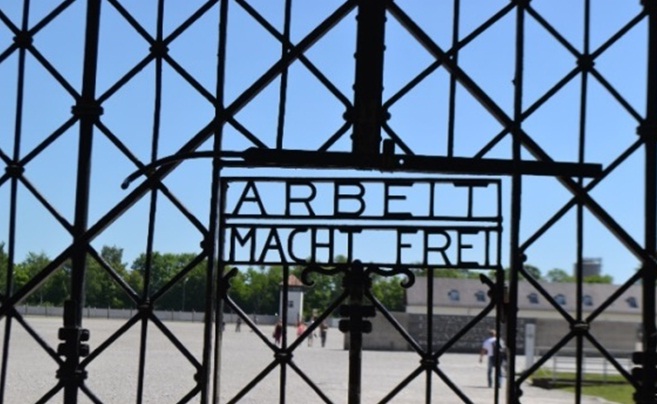“work will set you free”: my day at dachau

Arbeit macht frei: “Work will set you free.”
As I travelled the vast and beautiful land of Europe, many unique destinations left an impression on me: the Venetian canals, the castles in Tuscany, the cosy log cabin between the snow-capped mountains of Norway. But none of these placescompared to the eye-opening experience that was Dachau, and the truly saddening impression it left on me.
For those of you who may not recognise the name, Dachau is one of many former concentration camps that operated during the reign of the Nazi party during World War II. It originated as a camp for dissidence and later, with the help of Heinrich Himmler, became a fully-fledged concentration camp overrun by society’s “undesirables”, which were primarily Jews.
Between 1933 and 1945, communists, Jews, Gypsies and homosexuals alike were held within the confines of this camp. The famous phrase set into the gate of the entrance, ‘Work will set you free,’ held no truth. For those who set foot within the confines of this camp, their only promising escape was death, which is something many welcomed with open arms to escape the horrific conditions, such as overcrowding, extreme corporal punishment, rape, disease, starvation, limited access to toilets and hard labour. Sadly, many of the stories told on the tour were general overviews of life within the camp, rather than focusing on individual accounts. This is mostly due to missing records and the lack of survivors.
Although I have no ancestral connection to Dachau – or any concentration camp, for that matter – I have always felt that this would be an important and moving experience. I happened to be in Munich during the 70th anniversary of D-Day, which provided me with a ripe opportunity to visit the now-tourist destination.
The town of Dachau, located about an hour away from Munich, is a sleepy, pristine, area clustered with family homes and farms. Its current appearance gives no hint at all towards the horrors that it once concealed. The same goes for the camp itself. The fresh-cut grass and myriad of wildly coloured flowers dotted outside of the barbed wire disguise the all-too-real truth of Dachau: thousands died here and many suffered at the hands of the guards.
Inside, the muffled sounds of whispering voices and the echo of shoes bounce off of the freshly painted walls of the barracks that hold so many secrets beneath. If these walls could talk, they’d tell a tale of suffering and misery; of a life that can only be escaped from the chimney of the crematorium as their ashes burn.
It is really chilling to think that the spot where your very feet touched the ground was the same spot others stood tired and broken. Dachau was truly a place of death, with its raw terror remaining only as the creak of the old floorboards beneath your feet, or the icy shiver that is certain to run down your spine. To stand there in freedom is something to really appreciate, though, knowing that many people once lived here in fear.
Most confronting is the crematorium, which once burned the ever growing mountains of bodies within the camp. The eerie darkness and still air of the confining room are a contrast to what was once a busy, overcrowded space full of corpses. As the death tolls rose from starvation, exhaustion and disease, the piles grew higher, which at times became more than the workers could handle. On an average day, the air was thick with smoke and carried the stench of burning flesh – a disturbing familiarity of daily life at the time.
Visiting Dachau was very confronting and emotionally triggering. The photos, the videos and the explanations all outline the same point: life within a concentration camp was no life at all. These were real people experiencing horrendous situations every day; people who found more comfort in death than the daily nightmare of life.
While it is hard to learn about all the suffering, violence, illness and general mistreatment that took place, it is important to understand that this was no accident; this was a result of a ruthless quest for power – political and otherwise. Seventy years on, it has become a sad and unfortunate part of our past. Dachau marks a history we must never forget.

